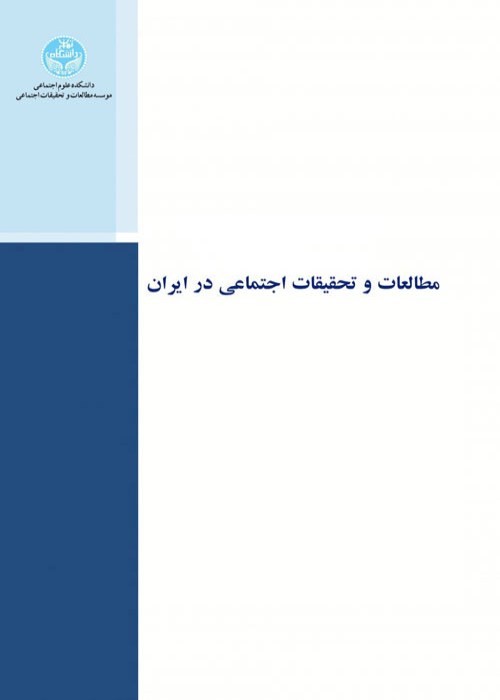The Experiences of Female-Headed Households and the Cycle of Misery (Case Study of Female-Headed Households in Karaj)
Indigent female-headed households are known as social harms. This group of vulnerable women faces a range of social, cultural, and economic problems that create a cycle of reproduction of poverty and misery for them. Research shows that female-headed households with children are five times more at risk of poverty than normal households. This study focuses on the situation of a group of female-headed households in the city of Karaj who are known heads of households for various reasons (death of husband, imprisonment, divorce, etc.) in order to examine various violations (economic and livelihood, social and cultural problems) and analyze the role of these three areas in reproducing the vicious cycle.
This article explores the lived experiences of female heads of households. To this end, in-depth interviews were conducted with 22 female heads of households in Karaj using a qualitative methodology, and the data collected were analyzed using a thematic analysis. The research area was the urban area of Karaj. The participants of the study were selected through purposive sampling and the snowball technique.
The results show that female heads of households face several problems, each of which contributes in some way to the reproduction of the unfavorable living conditions and their stability. The most important of these problems are: economic deprivation (securing livelihood and daily needs for themselves and their children), social problems (sense of social security in social relationships and interpersonal interactions), cultural thinking and perceptions (compassionate, dismissive, and humiliating gaze), skills-related problems (job skills and communication skills), health problems (illness and physical, mental, and psychological problems), etc.
The main problem of these women is “poverty of skills”. This means that most of these women do not have the necessary skills and abilities such as literacy, higher education, and physical health to get out of the abyss of poverty, which severely limits their life opportunities. The poverty of skills along with the challenges of the three areas has led to a situation referred to as misery in this article. In such families, women have to take care of earning and managing the economy, taking care of the children, etc., in addition to the head of the family. In such a situation, on the one hand, she has less time and energy for her life, and on the other hand, she has to do part-time work in the household. These conditions prevent women from continuing their education and acquiring skills and result in lower wages. Women do not have enough time to run the household and raise their children, and they have problems financing the family, which is called time poverty in the theory of the feminization of poverty, as the results of leading research underline. Slowly, this leads to financial poverty among female heads of households and their employment in low-wage and low-income occupations. Since most divorced women also have responsibilities for their child or children and are often unable to meet their demands, their frustration about the future as well as many failures in life have made female heads of households extremely vulnerable. It can be said that moral vulnerability and isolation are the most disturbing characteristics of female heads of households. The lack of many opportunities (the opportunity to create a good family, have a father, a good education, etc.) for this type of family somehow leads to the continuation and reproduction of the cycle of misery (economic damage, damage to interactions and damaged children).
- حق عضویت دریافتی صرف حمایت از نشریات عضو و نگهداری، تکمیل و توسعه مگیران میشود.
- پرداخت حق اشتراک و دانلود مقالات اجازه بازنشر آن در سایر رسانههای چاپی و دیجیتال را به کاربر نمیدهد.



